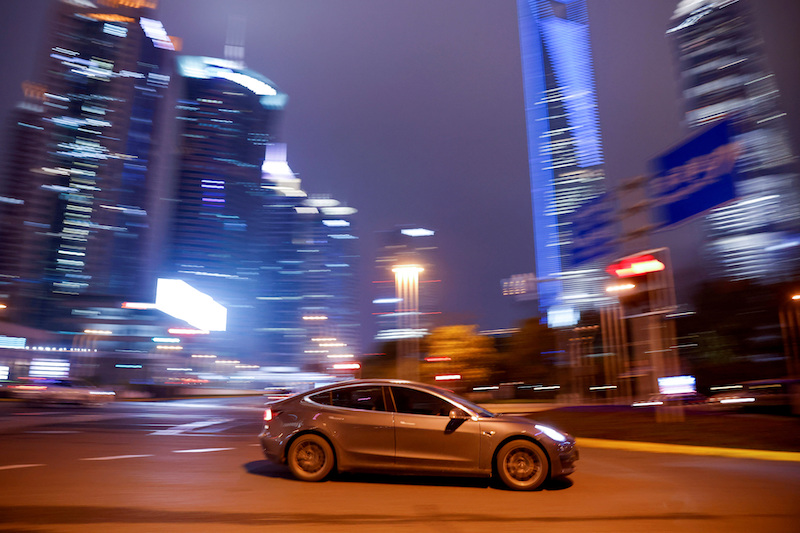Tesla is contemplating a rejig of its sales and service strategy in China to put more emphasis on stores in less-costly suburban locations that can also provide repairs, sources have revealed.
Founder Elon Musk wants to improve service for existing customers, many of whom have complained of long delays, two sources said.
The group could close showrooms in fancy malls in cities like Beijing, where traffic plunged when Covid restrictions were imposed, they said.
As part of the transition, Tesla is looking to ramp up hiring of technicians and other staff for service jobs in China, one of the people said.
Tesla’s China recruitment website showed more than 300 openings for service jobs as of Thursday.
Musk said last week on Twitter, in response to a Tesla owner in Texas who complained that he had been waiting a month to get his vehicle fixed, that he had made “advancing Tesla service to make it awesome” a top priority.
Unlike mainstream automakers, Tesla owns all of its own stores, rather than relying on dealers. It also sells its cars online. That has allowed it more leeway to adjust a retail strategy that had been initially modelled on Apple’s stores.
Tesla didn’t immediately response to a request for comment.
ALSO SEE: Tesla China Sales Triple in August After Factory Upgrade
Second Largest EV Brand
The US automaker sold 400,000 China-made Model 3 and Model Y cars in the first eight months of the year, with 60% of them sold locally, according to the China Passenger Car Association. That was 67% more than a year ago.
The change in Tesla’s approach in China, where it has become the second-largest EV brand behind BYD, would reflect a recognition that it has to build customer loyalty now that it has established its brand in the world’s largest car market, one analyst said.
“It’s not necessary to open showrooms in expensive shopping malls, especially when the repair business has become lucrative,” Yale Zhang, managing director at Shanghai-based consultancy Automotive Foresight, said.
“It makes better sense to keep only one or two showrooms downtown to keep the brand positioning but move more to suburbs.”
Focus Shifting to Maintenance
Tesla opened its first store in central Beijing in 2013 and now has over 200 outlets across the country that display models and arrange test drives for potential buyers.
More than half of the stores, however, do not offer maintenance service since they are in high-rent locations where space is limited. That includes Tesla’s first store in Beijing and its first store in Shanghai.
More than half of Tesla’s showrooms in seven of China’s biggest cities, including Shenzhen and Chengdu, are now in downtown areas, according to a count based on Tesla’s China website.
Like other companies, Tesla has seen traffic in its stores heavily disrupted by China’s tough approach to containing Covid-19, which has involved lockdowns of varying scope and duration, including in Shanghai where it has a factory.
It is not yet known how many urban showrooms Tesla is considering closing, or how many new locations in fast-growing suburbs could be opened, or what the cost of that shift would be.
Auto Show Protest
The carmaker has been the target of a series of customer complaints and lawsuits in China, including a well-known case last year which saw an unhappy owner clamber atop a Tesla at the Shanghai auto show to protest about the company’s handling of her complaints about malfunctioning brakes.
The incident received significant attention in China and prompted state media outlets to criticise the company.
Tesla later apologised to Chinese consumers for not addressing the complaints in a timely manner and pledged to review its service operations.
Tesla’s EV rivals in China have taken a mixed approach to retail distribution. Apart from self-run stores, BYD and Xpeng also rely on third-party dealers.
Nio, like Tesla, has a network of high profile urban stores in China. It has also invested in door-to-door service, dispatching workers, many of whom were hired from the hotel industry, to pick up cars for repairs and drop them off when work is complete.
- Reuters with additional editing by Jim Pollard
ALSO SEE:
Tesla Recalls 475,000 Model 3 and Model S Cars Over Safety Issues
Tesla sets up its first local data centre in China
Tesla does U-turn as China criticism mounts after owner protest
























